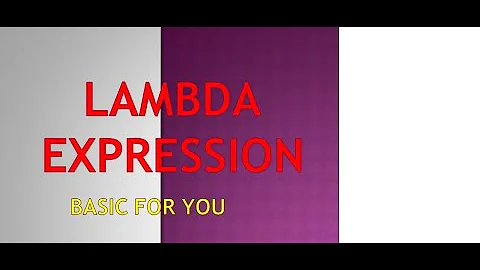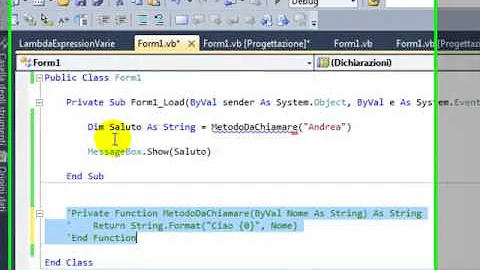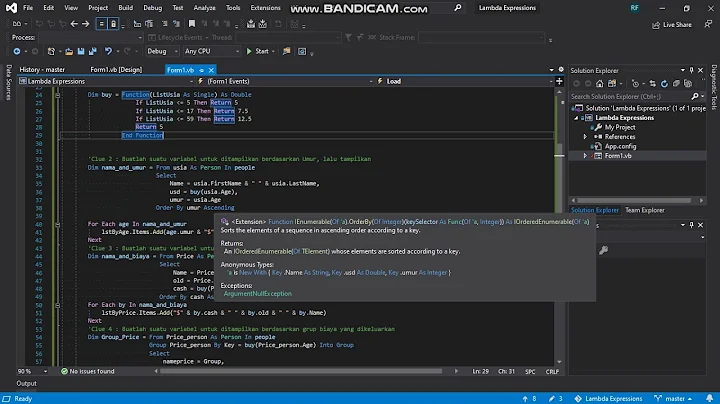How to write a VB.Net Lambda expression
82,046
The lambda syntax isn't that much different than creating a regular delegate.
If creating a lambda which has a return value, use Function. Otherwise if you're creating one that doesn't, use Sub.
Dim _new = orders.Select(Function(x) x.Items > 0)
Dim action As Action(Of Item) = Sub(x) Console.WriteLine(x.Items)
Related videos on Youtube
Author by
Venugopal M
Developer since 2000, basically Microsoft platform. Worked on C++, FoxPro, MS Access, VB 5.0, VB 6.0, Visual Studio 2003-2015, Sql Server 2015, Oracle, FireBird DB, C#, Windows Desktop, ASP.Net, MVC, .Net Core, Entity Framework, NHibernate, Unity Framework, Web Services, Web API, Service Stack, SOAP, WCF, WPF, Windows Phone Apps, JQuery, HTML, CSS, Angular JS, EJS, Bootstrap and more...
Updated on July 05, 2022Comments
-
 Venugopal M almost 2 years
Venugopal M almost 2 yearsI am working on a VB.net project now. I am new to VB.Net LINQ and would like to know the Lambda equivalent of
var _new = orders.Select(x => x.items > 0);in VB.Net.
Someone please suggest!
-
 Satpal almost 11 years
Satpal almost 11 years -
 Leszek P over 7 years
Leszek P over 7 years
-
-
Paolo Moretti almost 11 yearsIt looks different from a standard delegate, since in this case there is no
returnstatement, and the value returned is the value of the expression in the body of the delegate. -
Jeff Mercado almost 11 yearsI had always thought that the delegate in VB.net had an optional
Returnstatement.






